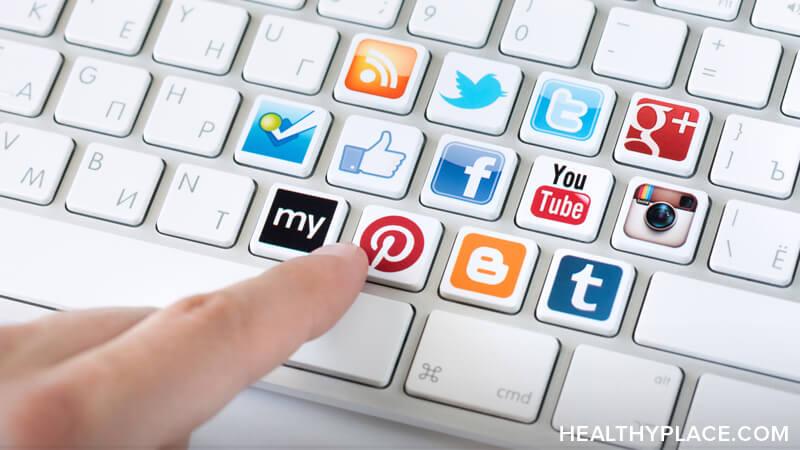Social Media and Mental Health: Dos and Don'ts

Social media can negatively impact your mental health. You don't need dozens of studies to tell you that,1 you've seen it in your own life. But it can also be a force for good. You've seen that too (otherwise, you wouldn't still use it). The question is: how can you find a balance? I've put together a list of Dos and Don'ts to promote a positive relationship between social media and your mental health.
Social Media and Mental Health: Dos
- Do send messages to friends and family. I live far from my family, so social media helps me keep in touch with them. When I saw my sister's post about her hike last week, I call her and ask more about it. And it's a fantastic way to reach out to people I haven't talked to in a while.
- Do follow positive and uplifting accounts. About a year ago, I started following therapists as anxiety and depression resources, dietitians for information about physical health, and body positivity blogs for self-confidence. My social media experience has been much better since then.
- Do limit the time you spend. I know, I know, this is hard sometimes. Most smartphones have time limit settings that you can adjust for certain apps. My apps close at 9 p.m. and open at 8 a.m. so I can spend time with family, rest, and start my day off in a non-digital reality.
- Do use it deliberately. For many of us, social media is where we go when we have a spare moment--waiting in line, when we wake up in the morning, et cetera. However, such passive use takes you out of the driver's seat. Have a purpose before you open the app. As yourself why you are using it. Is it to numb your own emotions or entertain you for a short period of time, or is it to connect with others?
- Do create "no digital device" spaces in your home. Have a space, whether it's your bed or your dinner table, or even your bathroom, where you and your family can be device-free. This encourages meaningful social interaction and also keeps you in control of your social media habits.
Social Media and Mental Health: Don'ts
- Don't gossip or spread rumors about people. Why do people get so much meaner behind a screen? They post hurtful things about others. Why do they do this? I truly do not know. Cyberbullying is a serious problem that's gotten much worse in recent years with the rise of social media. Choose to use social media for spreading positivity, not hatred.
- Don't start arguments in comment sections. No matter how passionate you are, even if you're right, these arguments never go anywhere. No one changes their mind. Everyone involved (including simple comment-readers) leaves feeling frustrated. Similar to the first "don't," try to make the world a better place through your social media use.
- Don't compare yourself to others. Whether it's to make yourself feel better or worse, comparison sucks away joy. Consider unfollowing or muting accounts of people who you constantly compare yourself to. Sometimes there's nothing wrong with the person; we just tend to compare ourselves to others in a harmful way. You don't need to feel guilty for unfollowing.
- Don't post things to feel better about yourself. When you're having a bad day, you might post a cute selfie so that you can feel better (or so that the likes and comments can make you feel better). You and I both know that the "high" from a new post fades away too quickly. Instead of turning to social media as a pick-me-up, choose your hobbies or face-to-face conversation.
You Are in Control of Social Media and Your Mental Health
It takes some practice, especially if you've developed strong habits of social media use. But the good news is: you can change those habits. If you, like me, sometimes feel trapped by social media that's affecting your mental health; you can take your life back. If you worry about social media's effects on your mental health, you have the power to detox.
Start with one thing on this list. When you've mastered that, try another. Little by little, you will feel the pressure of social media lift. Instead of being a fake reality that takes you prisoner, it can be a genuine force for good.
Source
- The Bronfenbrenner Center for Translational Research (BCTR), "The Complex Links Between Social Media and Mental Health." Psychology Today, March 2019.
APA Reference
Clawson, A.
(2020, December 16). Social Media and Mental Health: Dos and Don'ts, HealthyPlace. Retrieved
on 2026, February 27 from https://www.healthyplace.com/blogs/mentalhealthforthedigitalgeneration/2020/12/social-media-and-mental-health-dos-and-donts